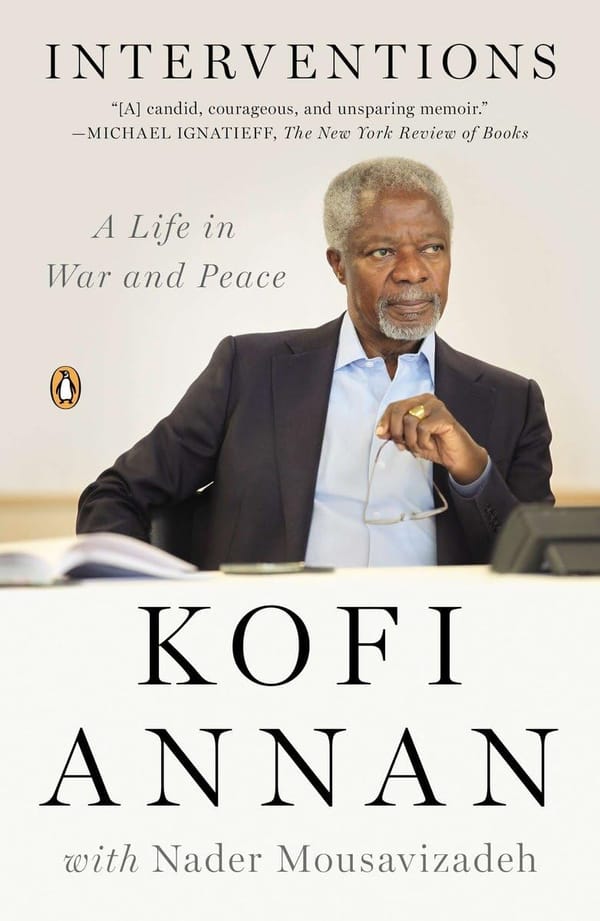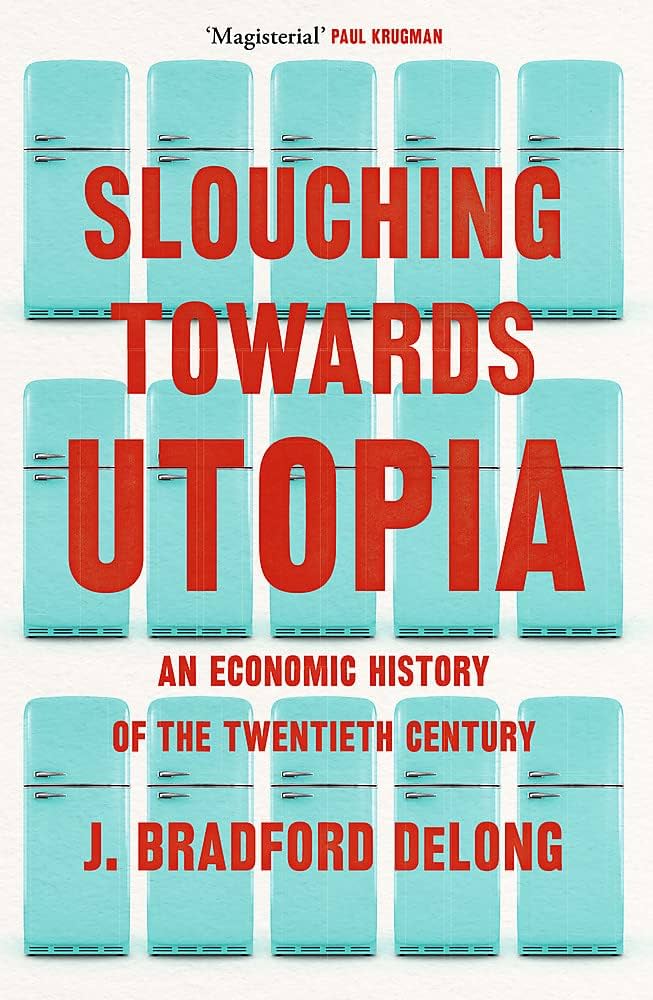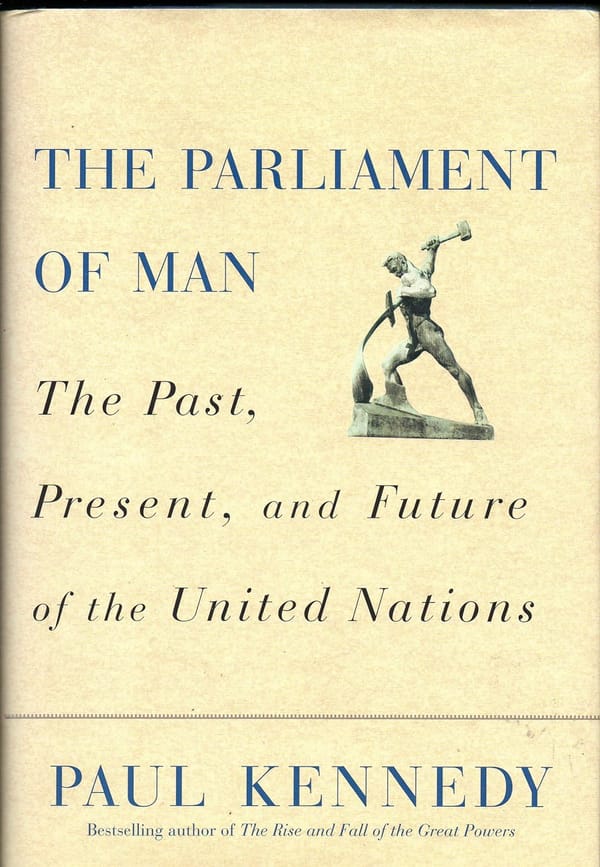By Kofi Annan (2013)
Pages: 416, Final verdict: Great-read
Kofi Annan is one of the most renowned figures in diplomacy over the past 50 years. During his 45-year tenure at the UN, he led its peacekeeping operations, served as the Secretary-General of the United Nations from 1997 to 2006, and was the co-recipient of the Nobel Peace Prize in 2001, alongside the UN.
Some look back to his term as the UN Secretary General and see it a failed mandate, marked the UN inaction in the Rwandan and Bosnian genocide, the Kosovo war and its failure to prevent the Iraq invasion in 2003. Others highlight his invaluable contributions to the Nobel Prize-winning efforts to promote economic development and peace worldwide, the establishment of the Millennium Development Goals, and his role as a tireless mediator in conflicts such as the Lebanon-Israel conflict, the East Timor crisis, and in Kenya.
More than ever before in human history, we share a common destiny. We can master it only if we face it together. And that, my friends, is why we have the United Nations - Kofi Annan
Interventions is Kofi's (as he was warmly known as) memoir. One might read it as his attempt to set the record straight. It's an introspective account of his time at the United Nations, its complexities and the challenges of international diplomacy at a time where the UN saw the post cold war period succeed the bipolar conflict between the US and Soviet spheres of influence. It was also a time where most international conflicts were within countries and not between them (the case of Israel and Iraq being large notable exceptions).
Annan's writing is candid and self-reflective, particularly when addressing the UN's shortcomings in the face of such crisis. Central to the narrative is the question of whether and how the UN should intervene in internal conflicts. The UN Charter is very clear that the organization should "respect the sovereignty, territorial integrity and political independence of other States". Sovereignty means different things for different countries, particularly within the permanent members of the Security Council. According to Kofi, this leads to a gordian-knot like problem when passing UN resolutions to lead Peacekeeping (and nation building) operations.
He does acknowledge the failures of the organization, particularly in preventing atrocities like those in Rwanda and Bosnia, although you come away with the sense that Kofi (right or wrong) attributes most of the blame to the UN apparatus' inability to get to a fast resolve.
Annan's memoir transitions smoothly from discussing the UN's challenges to highlighting its successes under his guidance. Among these, the creation of the Millennium Development Goals (MDGs) in 2000 stand out as a testament to his commitment to global development and humanitarian causes. His active role in peacekeeping and mediation across various conflicts, from East Timor to Kenya, showcases not just the UN's mission but his personal investment in diplomacy and peace.
I was really surprised by how hands-on Annan was, especially his commitment to talking things out and finding solutions in very complicated situations. It shows a leader who wasn't just about giving orders from afar but was right there in the thick of it, and truly believed in the idea that diplomacy is (almost always) possible.
Bottom line
Interventions gives us a rare, inside look at the high-stakes world of global diplomacy from Kofi Annan, a true heavyweight in the field. It's packed with insights on his biggest wins, and the role of internal diplomacy in the world.
But, perhaps with the bias of a being a memoir, it doesn't get to the bottom of some of this most controversial aspects of his tenure at the UN, especially the Oil-for-Food scandal.
That aside, it's a perfect book for anyone who enjoys reading about international relations, post-WW2 history, or anyone curious about what it takes to navigate the tricky waters of global politics.
Learn more
- Buy the book
- Read the United Nations charter



